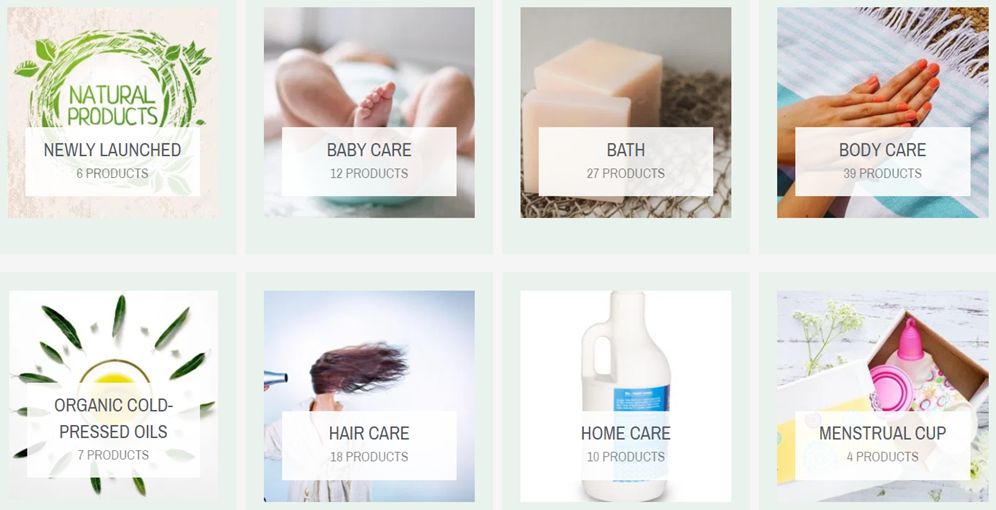Sustain and save’s young changemaker Nikita Singha recently connected with the very inspirational mother-daughter duo; Sunita Jaju and Surabhi Jaju. Sunita Jaju, a mother and an entrepreneur, is the mastermind behind ‘Rustic Art’, an enterprise that is revolutionizing the self-care and home-care category, by introducing sustainable alternatives that are eco-friendly and naturally obtained.
‘Rustic Art has been creating awareness and making people realise the importance of saving the planet at an individual level. Right from promoting green menstruation hygiene, being run on solar power, water efficient personal and home care products, and treating their own effluents 100%, Rustic Art gives in 200% to the environment, for all.’-(Rustic Art/About, 2020)
Sunita’s take on Sustainability
Sunita Jaju’s journey towards sustainability started when she was incredibly young. She grew up in a family that used home-made products for personal care and hygiene. She was never familiar with the ‘use and throw’ lifestyle and this is the strongest foundation for her sustainable life choices as well as her venture, Rustic Art. She says that sustainability is not a choice - ‘Sustainability is not a choice, rather it must be a part of your life’. She believes that practising sustainability in everyday activities will help you lead a guilt free life. Rustic Art has 110 products under their umbrella today, all being 100% natural, vegan, cruelty friendly and are also water efficient. “This one character is there in all our products. You require very less water to rinse them off, whether it is skin care, home care, hair care or even dishwash”, says Sunita.
Inspiration and Role Model
When asked about what inspires Sunita to wake up everyday and keep going, she told us that Nature is her only inspiration! Nature is what inspires her, interests her and is the source for her ‘sustainable nerve’. Rustic Art was founded in 2010. After this, there was no looking back. Everyday Sunita woke up early, finished her house chores and started working on her brainchild. It took her hours and hours and feedback after feedback from her family toperfect each product. She kept going even when things looked difficult – “I have failed many times with each and every product. It was a failure of 21 long months, and then I could succeed with the shampoo butter”, the unprecedented, latest innovation of Rustic Art which is also her personal favourite.One thing she would like to tell the youth is “Don’t get depressed with failure. Failure has always encouraged me to work more”.
‘With its founding principles firmly entrenched in empowering farmers and women, ‘Rustic Art’ sources most of the raw materials from farmer networks and 85 per cent of the workforce at the Satara unit comprises women who handle all the packaging, labelling and production. Currently, Rustic Art has developed a range of 110 products while supporting the livelihoods of over 250 people!’- (GOGOI, 2020)
Sustainable lifestyle starts at home
According to Sunita, we all must make a conscious decision of leading a sustainable life. Here are a few things that everyone can follow to begin their sustainable journey at home.
1. Whenever you feel like purchasing something new, think 110 times about if you really need that product. This will help you minimise your purchases, in turn reducing the amount of waste that you produce.It has been 10 years since Sunita and Surabhi Jaju not used a dustbin in their house. Anything that enters their house is either composted, reused or recycled. It is never thrown away.
2. Segregate your waste and recycle everything. This way, you move towards a circular economy and reduce demand at the consumer end.
3. Do not use disposable diapers or disposable sanitary products like pads and tampons. Instead you can choose a more sustainable alternative – ‘menstrual cup’ which will reduce the environmental impact of disposing pads and tampons and will also be good for your pockets.
Sunita and Surabhi were not used to throwing away things. Which is why sanitary pads were eating at their conscience. They soon found a better alternative – menstrual cup. They felt the need to make everyone aware of this choice, which is why they began testing prototypes and were successful in introducing them to their users.
4. Do not ask for polybags at the grocery store. You can carry your own bags from home, which will greatly help reducing plastic use. Also, do not purchase packed food. The materials used for food packaging are not always bio-degradable and we cannot reuse them efficiently.
5. Reuse as much as possible.
Following these simple but effective steps can largely contribute towards the health and well-being of your loved ones. More than a choice, sustainability is everyone’s responsibility and we must fulfil it to the best of our capabilities!
By : Bela S Nigudkar

